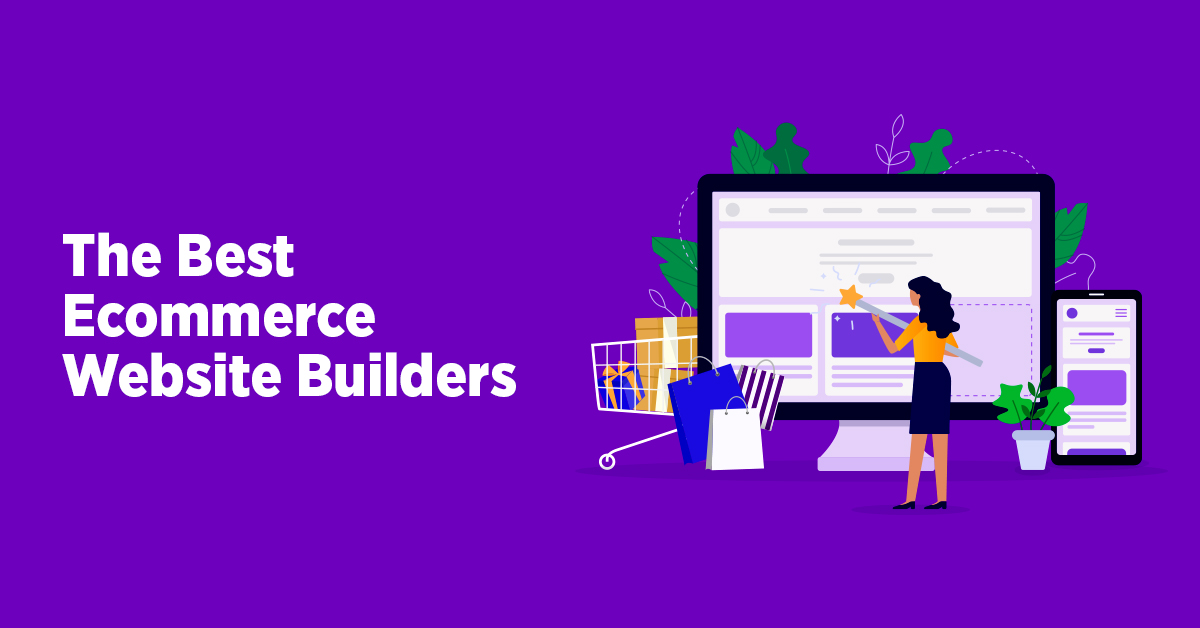A well-designed and user-friendly ecommerce website not only enhances customer experience but also plays a pivotal role in driving sales and fostering brand loyalty. When it comes to building an ecommerce website, choosing the best ecommerce website builder is a decision that can significantly impact the success of your online store. We’ll explore the key considerations in selecting the best website builder for your ecommerce venture.
The world of ecommerce is dynamic and competitive, requiring businesses to adapt and innovate continually. A well-crafted website is the cornerstone of any successful online store, and choosing a website builder is a critical factor in this process. Website builders are the foundation for your ecommerce site, providing the tools and features necessary to create and manage an online store effectively.
Understanding Your Ecommerce Needs
Before diving into the sea of website builders, it’s essential to understand your ecommerce needs thoroughly. Begin by defining your business goals and objectives. Are you aiming for a niche market, or do you plan to offer a wide range of products? Identifying your target audience and market niche will help tailor your website to meet specific customer needs.
Make a comprehensive list of the crucial features and functionalities for your online store. This may include inventory management, product categorization, secure payment gateways, and seamless checkout processes. Understanding your needs upfront will guide you in choosing a website builder that aligns with your business requirements.
Types of Website Builders
Different types of website builders are available, each with its own advantages and considerations. Hosted solutions, like Shopify and BigCommerce, provide a hassle-free experience as they handle hosting, security, and updates. On the other hand, self-hosted solutions such as WooCommerce and Magento offer more flexibility but require additional technical expertise.
Consider whether you prefer a drag-and-drop builder requiring minimal coding or a platform allowing more extensive customization through coding. Understanding the differences between these types of website builders will help you choose one that aligns with your technical skills and preferences.
Key Features to Look for in a Website Builder
The success of your ecommerce website hinges on the features offered by your chosen website builder. Look for a user-friendly interface that allows easy customization. A drag-and-drop interface can be especially beneficial for those without extensive coding knowledge.
Key Features are Essential
Ecommerce specific features are paramount. Ensure that the website builder supports efficient product management, including inventory tracking and the ability to showcase product variations. Seamless integration with secure payment gateways is non-negotiable for a smooth customer experience.
Mobile Responsiveness and SEO Prioritization
Mobile responsiveness is no longer an option but a necessity. Most online shopping occurs on mobile devices, and your website must adapt seamlessly to various screen sizes. Additionally, prioritize a website builder with robust SEO capabilities to enhance your online visibility.
Scalability and Flexibility for Future Growth
Scalability and flexibility are crucial, especially if you plan on expanding your product range or experiencing growth in the future. Choose a website builder to accommodate your business’s evolution without major overhauls.
Top Website Builders in the Market
Several website builders dominate the ecommerce landscape, each catering to different business needs. Shopify is known for its simplicity and user-friendly interface, making it an excellent choice for beginners. WooCommerce, a WordPress plugin, offers flexibility and scalability for businesses with varying needs. Wix is a versatile platform with a powerful drag-and-drop builder, while Magento is renowned for its open-source nature and robust features.
Consider the pricing models and plans offered by each platform. Some website builders have a monthly subscription fee, while others may charge transaction fees. Assess your budget constraints and choose a platform that offers the best value for your investment.
Factors to Consider in Decision Making
Budget constraints often play a significant role in decision-making. While some website builders may have a lower initial cost, consider the long-term expenses, including transaction fees and additional features requiring a higher pricing tier. Evaluate the technical expertise required to operate the platform and ensure adequate support options are available.
Integration capabilities are vital, especially if you plan to incorporate third-party tools or applications into your ecommerce website. Check whether the website builder seamlessly integrates with popular payment gateways, analytics tools, and other essential plugins for your business.
Security should be a top priority. Your ecommerce website will handle sensitive customer information, and a robust security infrastructure is non-negotiable. Ensure that the website builder implements necessary security measures and complies with data protection regulations.
User Experience and Design
The success of an ecommerce website hinges on the user experience it provides. A user-friendly interface is essential for both customers and administrators. Choose a website builder that offers intuitive navigation and customization options, allowing you to create a unique and visually appealing online store.
Look for templates and design options that align with your brand identity. Many website builders offer a range of templates that can be customized to suit your specific needs. Examining examples of well-designed ecommerce websites built with different platforms can inspire your own site.
Making the Final Decision
After thorough consideration of the factors outlined above, it’s time to make the final decision. Recap the key considerations, ensuring the chosen website builder aligns with your business goals, budget, and technical capabilities. Once you’ve made your decision, follow a systematic approach to set up your online store, including migrating data and configuring settings.
Conclusion
Seeking the best ecommerce website builder starts with evaluating your needs and objectives. The decision-making process requires a comprehensive understanding of your business needs, careful consideration of available options, and a focus on key features and considerations. As you embark on your ecommerce journey, remember that the digital landscape is ever-evolving. Regularly optimize and adapt your website to meet changing customer expectations and industry trends.


